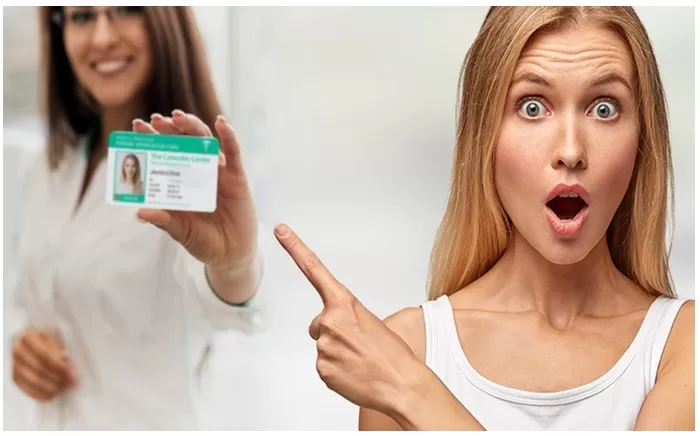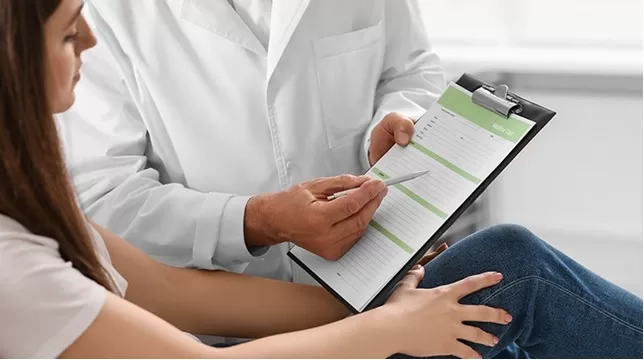Health
What to Say to an MMJ Doctor During an Online Consultation

During a consultation with an MMJ doctor online, being upfront and honest is crucial if you’re considering using marijuana to help with symptoms of a medical issue. Although medical marijuana has been shown to be successful in helping with several ailments, such as chronic pain, anxiety, and depression, it is not a cure-all.
To decide if medical marijuana is a safe and effective therapy option, your doctor must thoroughly grasp your medical history, present symptoms, and specific needs. In order to have a fruitful and educational discussion about your medical needs and treatment alternatives with your doctor during an MMJ card appointment, we will go over what to say in this post.
Begin with Honesty and Take it From There
The most important thing is to be open with your MMJ doctor about your health history and present symptoms. This covers any previous medical diagnoses, prescriptions you’re taking right now, and any allergies or sensitivities you might have. To determine if medical marijuana is a safe and effective therapeutic choice, your doctor must fully understand your condition.
Be prepared to discuss the symptoms or ailments you hope to manage with medicinal marijuana during your session. This may entail, among other things, persistent discomfort, anxiety, sadness, or insomnia. Your physician will be interested in how these symptoms affect your day-to-day activities and what therapies you have previously tried.
It is critical to realize that medicinal marijuana is not a universally effective medication. Certain strains and delivery techniques might prove more beneficial for one person than another. Your MMJ doctor may suggest particular strains or dosages based on your particular requirements when you inquire about your chosen manner of consumption—such as smoking, vaping, or eating edibles.
Prepare for Resistance

Although getting an MMJ card in certain states is relatively easy, not all doctors are willing to breeze through the consultation. One thing they’ll want to discuss is the potential adverse effects associated with marijuana.
Even though medicinal marijuana is generally considered safe, it can have some unpleasant side effects, including dizziness, dry mouth, and poor coordination. If you have ever encountered any of these side effects, let your doctor know so they can advise you on how to handle them if they do.
In essence, it’s crucial to review the advantages and disadvantages of using medicinal marijuana with your physician. Although MMJ is potentially useful in managing the symptoms of many diseases, not everyone should use it. If medical marijuana is not the best option for you, your doctor can advise you on other treatments and assist you in weighing the potential benefits and risks.
It’s also crucial to talk about any worries you might have regarding the consequences of consuming medical marijuana legally. Even though medical marijuana is now allowed in many states, it is still prohibited by federal law.
You must also thoroughly check the specific rules and regulations of your state’s MMJ card program. This means understanding the purchasing and possession limits, the types of products you can buy, and whether it is legal to cultivate the plant at home.
Final Thoughts on How to Get Through a Consultation with an MMJ Doctor
In conclusion, having a frank discussion with your doctor at an MMJ consultation is crucial to ensure that medical marijuana is a suitable and safe therapy option for you. You can decide whether medical marijuana is the best option for you by talking to a doctor about your medical history, current symptoms, preferred method of ingestion, potential side effects, legal issues, and the potential dangers and advantages of using MMJ.
Always remember to communicate honestly and openly with your MMJ doctor and to voice any questions or worries you may have. You can discover a course of therapy that suits you and enhances your general quality of life with the help of your doctor.
At the time of writing, getting an MMJ card in 37 states plus Washington, D.C, is possible. Although more than half of these states also allow recreational marijuana, it is worth pursuing the medical variety because MMJ patients benefit from lower taxes, higher possession limits, and potentially more potent products.



















































